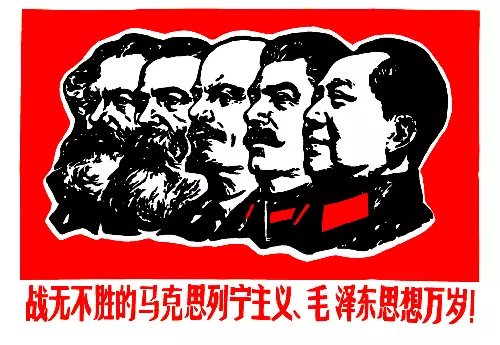Not that it's... bad per se.
But I feel that it's already (I'm almost halfway through the book) covering ground that's talked about in more depth in other books that have come out since 1983. Which I guess isn't the book's fault and it's a nice overview of US history from a different viewpoint, but its analysis is kinda... Eh, bad, I guess? Marxist thought in general does not recognize slaves as "proletarians" and I don't think many black Americans even recognize themselves as "New Afrikans," which I think is a Maoist term.
I also don't like how it misquotes and attacks people like Herbert Aptheker (who was attacked by the FBI during his day) and communist historian Philip S. Foner. Just seems that the author has an axe to grind, which would make sense if he was indeed a Maoist before Gonzalo turned Maoism in to something more than just a pro-China stance during the Cold War. After all, William Z. Foster, Herbert Aptheker, and Philip S. Foner were pretty staunchly pro-Moscow (originally, being a Maoist usually meant that you had a pro-Beijing stance during the Cold War after the Sino-Soviet split).
Anyways, I know that @muad_dibber@lemmygrad.ml loves Settlers and, if I have it right, it influenced him during his more formative years as a comrade. And I get that. So I don't mean to come off as attacking the book, which is fine as an overview of the atrocities committed by the United States. How many people talk about the genocide against the Asian immigrants along the West Coast of the continental United States? But I do think that it lacks in terms of analysis.
I'm currently halfway through the book, of course, so I'll continue reading. I like that it gives a who's who and what's what of people and events of colonial and United States history. I would recommend it to get a breakdown of the events leading up to the modern-day, but as the saying goes: don't believe everything you read. Or rather, sometimes, it's good to read something a bit critically.
Some books I would recommend if you like Settlers (or even didn't like it):
White Supremacy Confronted: U.S. Imperialism and Anti-Communism vs. the Liberation of Southern Africa from Rhodes to Mandela by Gerald Horne (Author)
Bind Us Apart: How Enlightened Americans Invented Racial Segregation by Nicholas Guyatt
Black Worker in the Deep South by Hosea Hudson (Author)
Imperialism in the Twenty-First Century: Globalization, Super-Exploitation, and Capitalism’s Final Crisis by John Smith (Author)
Red Skin, White Masks: Rejecting the Colonial Politics of Recognition (Indigenous Americas) by Glen Sean Coulthard (Author)

I've read Settlers, recently. Most of it i already knew, but discovering how much of the US was built by Chinese people, and then how badly they were treated afterwards, was new to me.
My issue with the book is an undertone of 'You can't trust whitey' And where many people take that undertone. On some forums, i have had people [only 2 so far] tell me not-jokingly, that concentration camps, and mass extermination is fine, as long as it happens to white people. Basically, the nazis were right, they just had the wrong targets. And they cited this book as to why.
And when you bring this up, people jump to white fragility and so on, as explanations as to why you MUST be hating the book. What the book says is not new. And much of it is true.
My issue with it is that it seems to be purpose written to stop Fred Hampton. Because he wanted to unite the working class, black, brown and white. And you have people citing this book as reasons to abandon the white members of the working class to the far right, and condemn any attempts to reach them in a revolutionary context.
there are better books saying the same stuff, without the drama. https://erich-arbor.medium.com/the-anti-marxist-elitism-of-j-sakais-settlers-409ff2d496ee
http://rashidmod.com/?p=1125